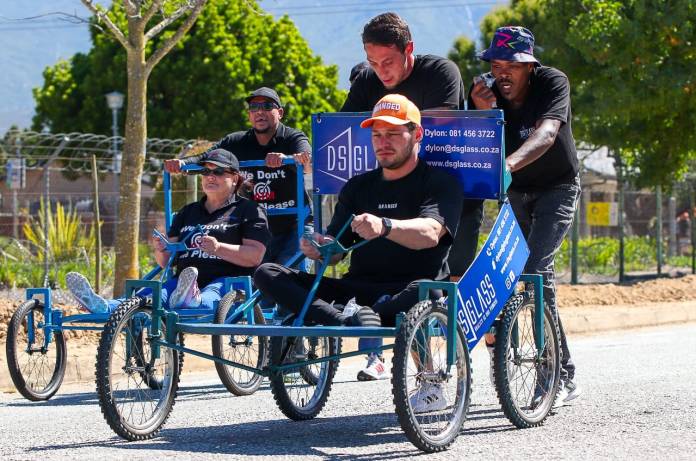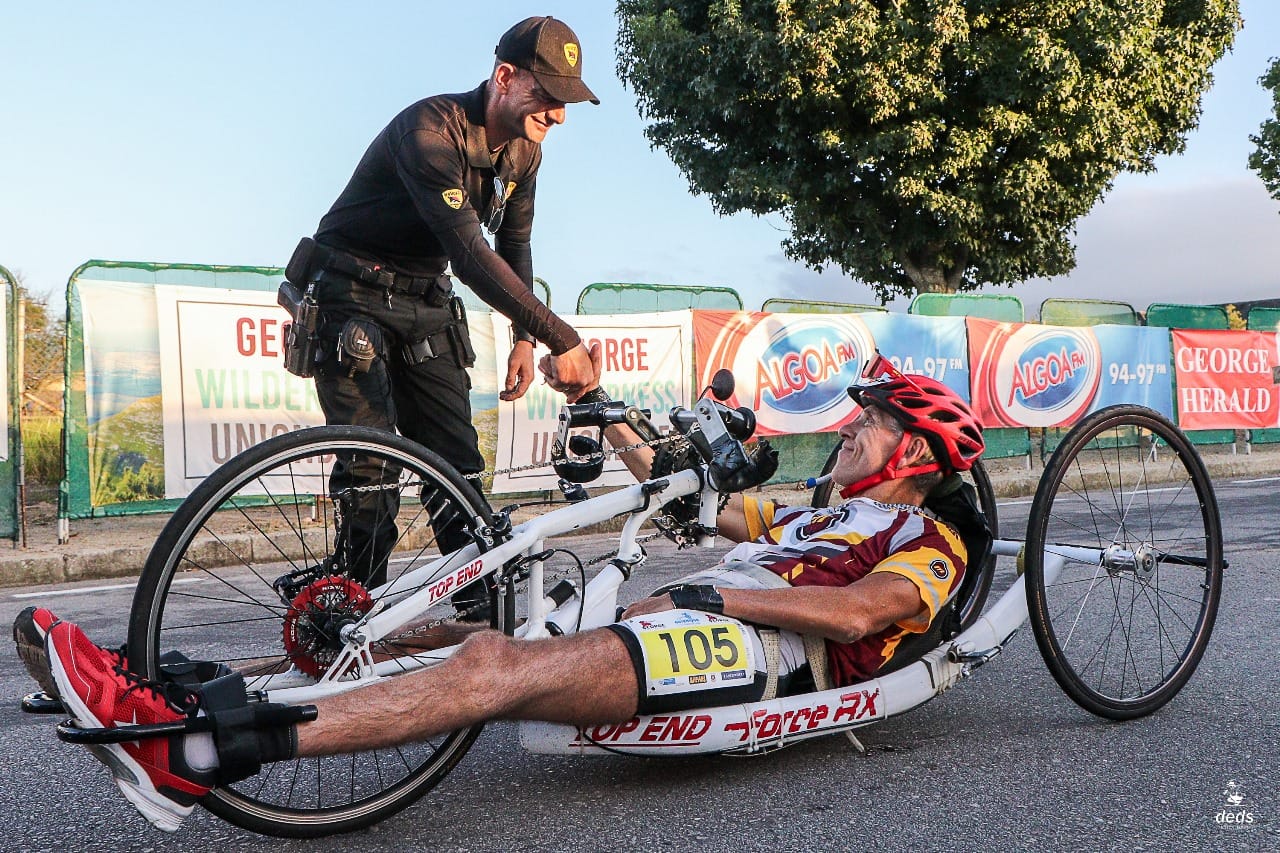
Amidst the scenic beauty of George, the 20th edition of the Outeniqua Chair Challenge (OCC) emerged as a powerful celebration of courage, determination, and the unyielding human spirit. With the Carpe Diem School as its pulsating heart, transformed into a lively hub of activity, the event on the 23rd and 24th of February 2024 became a beacon of hope and solidarity, drawing participants and spectators alike into a shared journey of inspiration and triumph.
The ceremonial opening on Friday night set the tone for the weekend’s events, igniting a flame of excitement that would burn brightly through the next day. As dawn broke on Saturday, the air thrummed with the sound of the starting siren, marking the beginning of the 42km marathon. The energy was palpable as participants lined up, their faces alight with determination and hope.
The OCC was more than a race; it was a mosaic of challenges and victories, featuring a 21km half-marathon, a 10km race, and a heartwarming 5km fun event. This special course was graced by wheelchair users of all ages, pushed by volunteers, embodying the essence of inclusion and joy. Athletes competed in various categories, showcasing the incredible diversity and adaptability of the human spirit. From paraplegic to quadriplegic competitors, the OCC embraced all, with categories tailored to different types of chairs, including ordinary wheelchairs, racing chairs, hand cycles, and basketball chairs.
The OCC was not just about the athletes but also celebrated the spirit of the local community. Alewijn Dippenaar, the heart behind the event, extended a special tribute to the 20 local businesses that brought laughter and light-hearted competition to the ‘kaskar crown’ event. Their participation underscored the power of community and the joy of collective endeavour, turning the race village into a melting pot of laughter, support, and unforgettable memories.

Dippenaar highlighted the three pillars that defined this year’s challenge: respect, tolerance, and collaboration. These values were the silent heroes of the event, weaving a fabric of unity that enveloped every participant, volunteer, and spectator. Respect was the golden thread that connected everyone, ensuring that each individual was seen, heard, and valued. Tolerance was the space that allowed everyone to coexist harmoniously, embracing the road closures and logistical challenges with grace and understanding. And collaboration was the force that propelled the event forward, a symphony of efforts that turned individual actions into a collective masterpiece.
The OCC was a global stage, welcoming participants not only from across South Africa but also from nations like Ghana, Zimbabwe, and Botswana. Among them were shining stars like Botsyo Nkegbe and Mclean Dzidzienyo from Ghana, who dominated the 42km racing cycle category, and South Africa’s own Zack Legward, the youngest hand-cycle racer to win the junior 21km race. Each athlete, each story, added a vibrant thread to the rich tapestry of the OCC.
But beyond the races and the medals, the OCC was a beacon of hope and a celebration of the human spirit. It was about overcoming, about pushing beyond the limits, about finding joy and strength in the face of adversity. It was about community, about coming together to uplift, support, and inspire one another. In the end, the OCC was more than an event; it was a movement, a powerful reminder that together, we are unstoppable.

